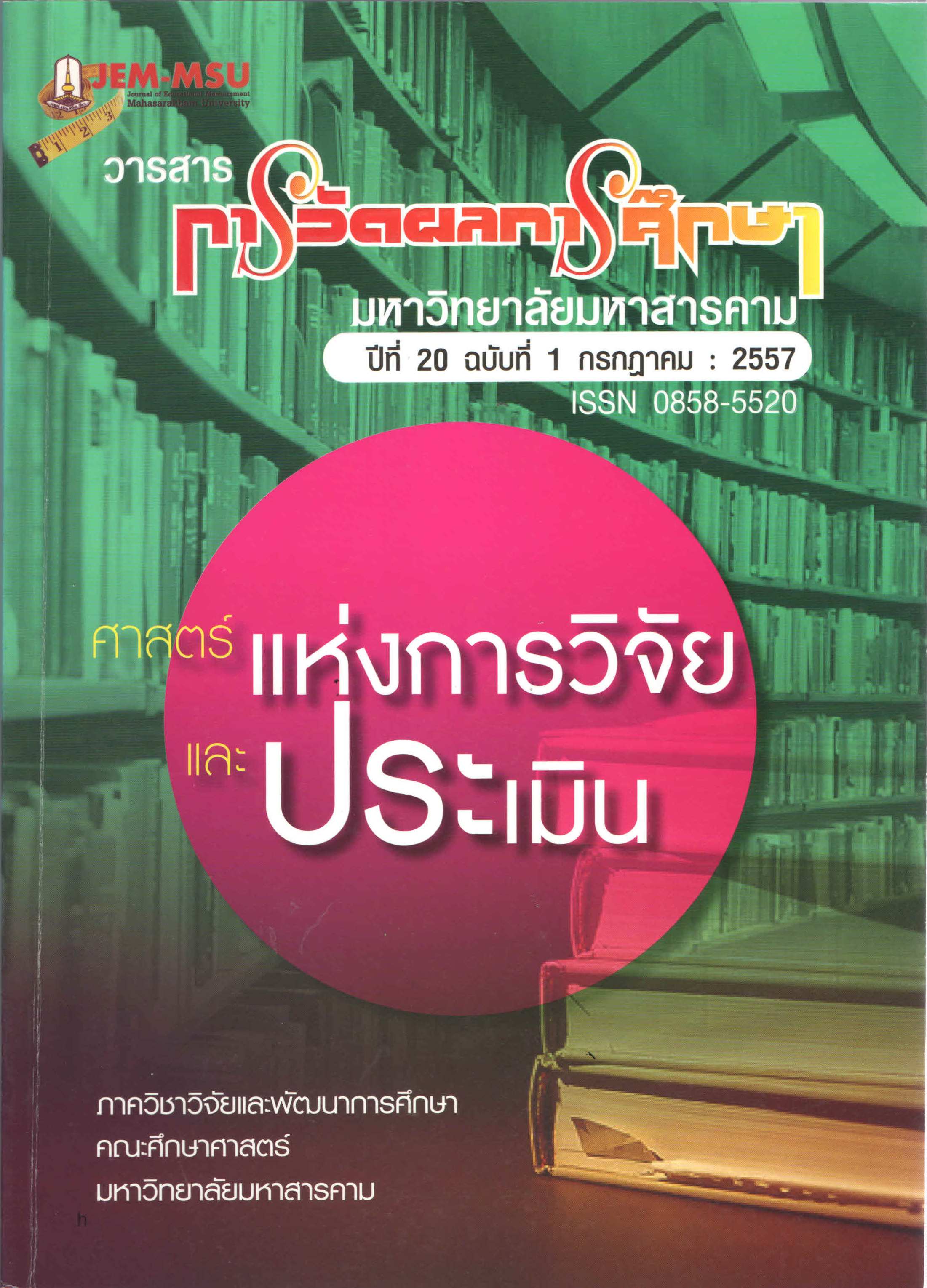Developing Tests of Mathematical Reasoning Ability for Secondary education 1 Students under the Office Educational Service Area 27
Main Article Content
Abstract
Mathematical reasoning is regarded as skills necessary to be developed in
learners for being usefulness and mathematics learning foundation to develop
learners’potentials in different aspects to have more efficiencies. This study aimed
to find out testqualities and to construct norms. The sample consisted of 600
Mathayomsueksa1(grade7) students the Office of Roi - et Educational Service Area
27 in the the academic year 2012, obtained using the multi-stage random
sampling technique. The instruments used for development were these 3 tests.
Test 1 was a 60-item of multiplechoice test of data- or fact-referenced
mathematical reasoning ability with 200 students. Test 2 was a 52-item of
multiplechoice test of data- or fact-referenced mathematical reasoning ability
with 200 students . And Test 3 was a 45-item of multiplechoice test of data- or
fact-referenced mathematical reasoning ability with 200 students.
The finding were as follows :
1. The multiple choice test. Measure the ability to reason mathematically.
For students who are 4 options 1 through 45 on the built-in benchmark.
2. The content validities by having experts consider congruence
between question items and mathematical reasoning ability including rating
criteria had congruence indices ranging 0.60-1.00.
3. Test 1 the difficulties ranging 0.09-0.89, discriminating powers ranging
- 0.11 - 0.80 reliabilities of multiple-choice. Test 2 the difficulties ranging 0.09-0.99,
discriminating powers ranging 0.11 - 0.77 reliabilities of multiple-choice.
4. The difficulties ranging 0.33-0.74, discriminating powers ranging 0.24
- 0.88, reliabilities of multiple-choice as calculated by using the KR-20 formula
ranging equal to 0.93. Norms of Test for testing knowledge-referenced reasoning
ability had T- scores ranging T28 - T71
In conclusion, the development of the tests of mathematical reasoning
ability could help develop mathematics learning and teaching to be more
efficient. Therefore, it is appropriate to implement this method in applying to
mathematics learning or other subjects to develop efficient quality of education
in the future.
Article Details
The content and information contained in the published article in the Journal of Educational Measurement Mahasarakham University represent the opinions and responsibilities of the authors directly. The editorial board of the journal is not necessarily in agreement with or responsible for any of the content.
The articles, data, content, images, etc. that have been published in the Journal of Educational Measurement Mahasarakham University are copyrighted by the journal. If any individual or organization wishes to reproduce or perform any actions involving the entirety or any part of the content, they must obtain written permission from the Journal of Educational Measurement Mahasarakham University.


